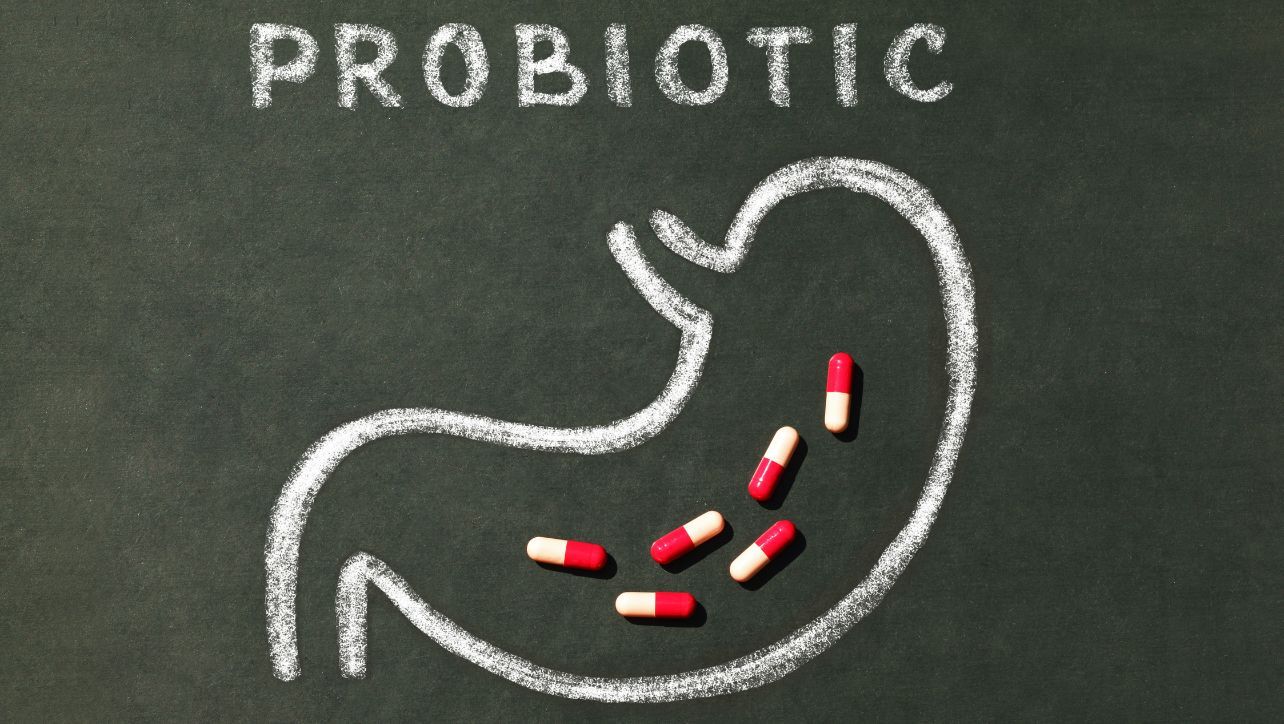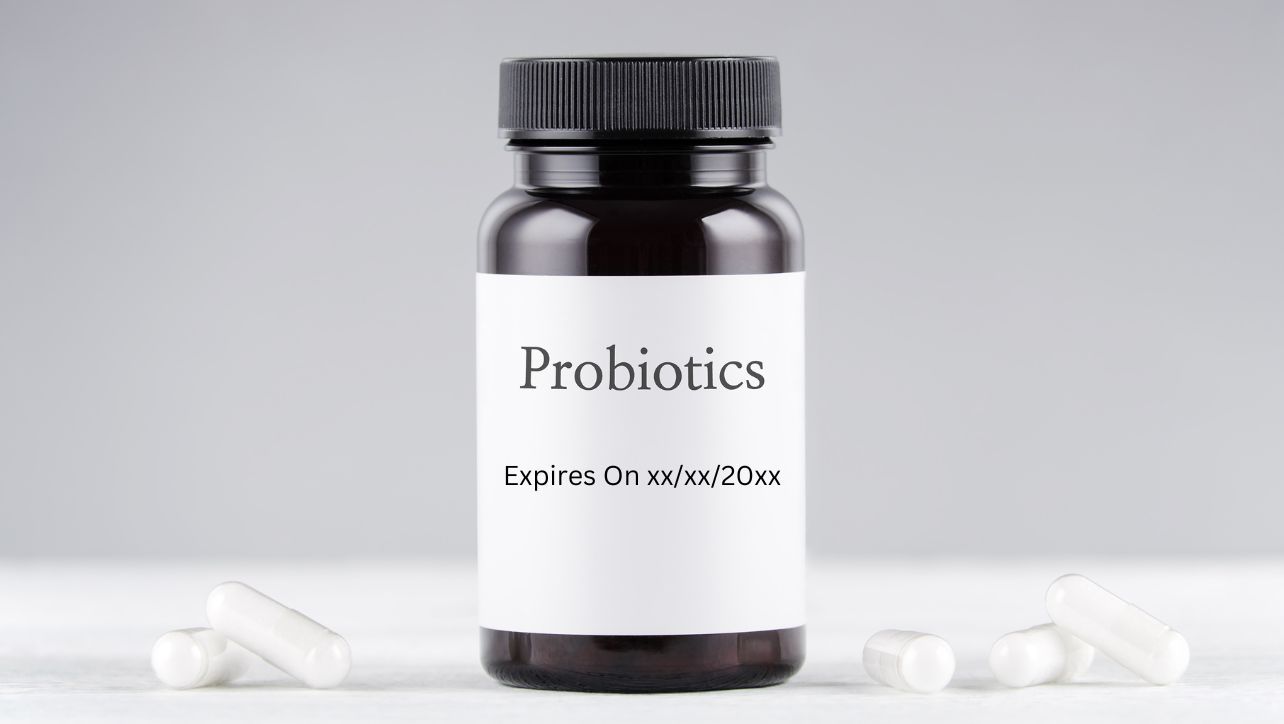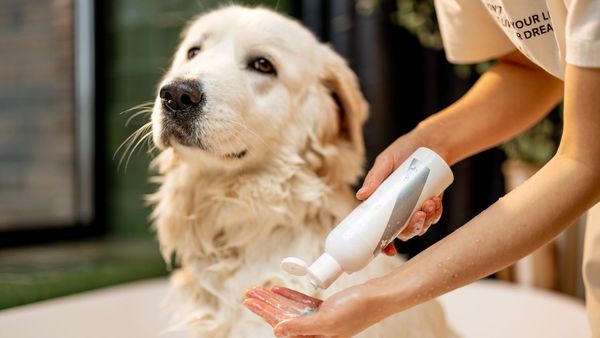Did you know that the key to your dog's overall health and well-being could be hidden within their gut? That's right; probiotics play a crucial role in maintaining your furry friend's health.
But what exactly are probiotics, and how can they benefit your dog?
In this comprehensive guide, we'll explore the world of dog probiotics, uncover their numerous benefits, and share essential tips on choosing the right probiotic for your beloved canine companion.
So let's dive in and discover the ultimate guide to dog probiotics in 2023!
What is the Best Probiotic for Dogs?
Based on expert reviews, the best probiotic for dogs in 2023 is VetriScience Mega Probiotic and Prebiotic (click here to check the price on Amazon). This product contains a potent blend of probiotics and prebiotics designed to help your dog's digestive and immune systems remain healthy and strong.
It is formulated with a unique blend of beneficial bacteria that helps to restore the balance of the gut microbiome, which is essential for optimal digestive health. Additionally, the prebiotics in the formula help to nourish the body.
Short Summary
- Probiotics offer numerous benefits for dogs' health, such as reducing the risk of gastrointestinal issues and supporting their immune system.
- When selecting a probiotic, it is important to opt for species-specific supplements from reputable veterinary manufacturers and follow dosage instructions provided by the manufacturer or veterinarian.
- Probiotics can provide various advantages to canine companions including digestive health support and relief from food allergies & stress.
What are Probiotics for Dogs?

Probiotics are living microorganisms that support intestinal microbial balance for canine health. These beneficial bacteria aid in breaking down food, synthesizing nutrients and vitamins, defending against potential pathogens, and bolstering immunity.
But did you know that probiotics rely on prebiotics to thrive? Prebiotics are types of fiber that nourish and promote the growth of beneficial bacteria already present in the colon, serving as a food source for probiotics. Some suitable prebiotic foods for dogs include dandelion root, burdock root, larch arabinogalactian, and inulin from chicory.
Probiotics can help sustain healthy levels of beneficial bacteria, reduce the risk of gastrointestinal issues, and reinforce the immune system following disruption from illness, infection, antibiotic treatment, or other stressors.
Moreover, probiotics play a pivotal role in the "gut-brain axis" – the interaction between gut microbes and the brain, which influences mood. Veterinarians may recommend probiotic supplements for dogs when their gut microbial balance has been disrupted, such as during periods of stress, illness, or malnutrition.
The Importance of Prebiotics
Prebiotics are indigestible or partially digestible food substrates that stimulate the growth of beneficial microbes in the canine's gastrointestinal tract, providing nourishment for probiotics. They play a crucial role in maintaining an optimal balance of microorganisms in the canine gastrointestinal tract, thereby promoting a healthy gut. Some sources of prebiotics include vegetables like chicory root, artichokes, and apples.
Administering prebiotics to dogs can be accomplished through high-quality dry or wet food. However, it is essential to introduce these foods gradually and in limited quantities to prevent digestive discomfort. Additionally, it is recommended to consult with a veterinarian before incorporating any novel foods into a dog's diet.
Choosing the Right Probiotic for Your Dog

Probiotics for dogs are available in a variety of forms, including powders, capsules, tablets, chews, and sprays. These give pet owners the flexibility to choose the right product for their furry companion. To ensure a higher number of beneficial live microorganisms, it is recommended to opt for dog probiotic supplements in the form of a powder, capsule, or chew.
Species-specific probiotics guarantee the inclusion of the appropriate strains of beneficial bacteria tailored to the needs of dogs. When selecting probiotic products for dogs, it is advisable to choose those with more research behind them, typically from reputable veterinary manufacturers.
Proper storage of probiotics is crucial to keep the good bacteria alive and maintain their effectiveness. Be sure to store them according to the product label instructions and check the expiration date.
Moreover, it is essential to follow the recommended dosage and usage instructions provided by the manufacturer or your veterinarian. For instance, NaturVet Advanced Probiotics & Enzymes should be given daily at mealtime, with the number of chews varying based on the dog's weight.
Probiotic Formulations
Various probiotic formulations for dogs may include Bifidobacterium animalis, Bifidobacterium breve, Bifidobacterium lactis, Enterococcus faecium, Lactobacillus acidophilus, and Lactobacillus casei.
A veterinarian may suggest specific probiotic formulations based on the dog's age, breed, and health conditions. It is important to select the right formulation to ensure the best results for your furry friend.
For example, Nom Nom offers a full-spectrum probiotic formula that includes a prebiotic and seven strains of live bacteria to promote regular digestive and immune functioning and intestinal tract health. GI-targeted formula contains Saccharomyces boulardii, which can be used to treat various conditions in dogs. These include diarrhea, Clostridium difficile and inflammatory bowel disease.
Understanding the differences between these formulations can help you make an informed decision on the best probiotic for your dog's unique needs.
Probiotic Benefits for Canine Health

Certain species of probiotics may offer numerous benefits to dogs by managing yeast, supporting the immune system, preventing anxiety and reducing stress, relieving diarrhea and food allergies, and supporting the immune response to shorten the course of diarrhea. Probiotics can improve dog diarrhea caused by stress, diet changes, antibiotic use, or bacterial infections.
For example, VetriScience's probiotic formula supports digestive health, helps with food sensitivity and allergies, and promotes a healthy immune and neurological system.
Gut Guard by Four Leaf Rover, on the other hand, is specifically designed for dogs with inflammatory bowel disease (IBD) and helps increase healthy gut flora, break down complex fibers and starches, and seal an intestinal lining with leaks. The organic herbs in Gut Guard also possess remarkable anti-inflammatory properties to alleviate the gut of dogs with IBD.
Probiotics for Diarrhea and Digestive Issues
Probiotics can assist in the regulation of gastrointestinal issues and reduce the duration and severity of diarrhea in dogs. Certain strains of probiotics have been found to be beneficial in preventing irritable bowel syndrome and diarrhea in dogs, making it crucial to select the appropriate probiotic based on your dog's specific needs.
When administering probiotics to dogs with diarrhea or digestive issues, it is essential to consult with a veterinarian before providing the supplement. They can recommend the most suitable probiotic formulation and dosage for your dog's unique condition, ensuring the best possible results.
Puppy Probiotics: When and How to Use

Puppies can also benefit from probiotics to develop intestinal bacteria and support their immune system. Puppy probiotics may be particularly helpful when a puppy is on antibiotics, has digestive issues, or is transitioning to a new diet. It is recommended to follow the instructions on the probiotic supplement and give it for a minimum of one to two months to ascertain the maximum benefits.
Before administering puppy probiotics, it is crucial to consult with a veterinarian, as the supplements may interact with other medications. Additionally, ensure the probiotic supplement is stored correctly and not past its expiration date to maintain its effectiveness.
Human Probiotics vs. Dog Probiotics

While dogs can take human probiotics, species-specific supplements may provide more benefits due to different gut microbiomes. Human and dog probiotics possess distinct strains of bacteria, with dog probiotics typically having a lower colony-forming unit count and being tailored to a particular species.
Opting for species-specific supplements ensures that your dog receives the appropriate strains of beneficial bacteria best suited for their unique needs. This can help enhance their overall health and well-being, making species-specific probiotics a more advantageous choice for your canine companion.
Probiotic Foods for Dogs: Safe Options and Precautions
Some human foods with live cultures, such as yogurt, may benefit dogs, but adding new foods can cause health problems, making supplements a safer option. Other probiotic food options for dogs include kefir, garlic, bananas, apples, seaweed, and vegetables such as asparagus and dandelion greens.
When providing probiotic foods to dogs, it is essential to introduce them gradually and in limited quantities to prevent digestive discomfort. Always consult with a veterinarian before providing probiotic food to your dog, especially if they have any existing health issues or are on medication.
Also, be sure to ensure that the food is fresh and not past its expiry date, as spoiled food can cause harm to your dog's health.
Top Probiotic Products for Dogs in 2023
In 2023, the top probiotic products for dogs are listed below. Click any link and it will take you over to Amazon to check the price and see if it fits your pup's needs.
Purina Pro Plan Veterinary Diets FortiFlora Probiotics
Native Pet Probiotics & Prebiotic Dog Supplement
Nutramax Proviable-DC Capsules Digestive Supplement
Fera Pet Organics Probiotics with Organic Prebiotics
PetLab Co. Probiotics for Dogs
Wild One GUT Probiotic & Digestion Aid Supplement
These products have been carefully formulated to cater to the unique needs of dogs, ensuring optimal health and well-being.
Each of these products offers specific benefits for your canine companion. For instance, Purina Pro Plan Veterinary Diets FortiFlora Probiotics contain Enterococcus faecium, which is specifically designed to support digestive health.
On the other hand, Native Pet Probiotics & Prebiotic Dog Supplement is made with organic ingredients and contains added prebiotic fiber to help promote a healthy gut environment for beneficial bacteria.
Nutramax Proviable-DC Capsules Digestive Supplement is another excellent option, containing seven bacterial strains and can be administered either in capsule form or split open and sprinkled on as a powder. Zesty Paws Probiotic Bites Pumpkin Flavored Soft Chews has received a 5-star review on Amazon, with over 21,000 reviews, making it a popular choice among pet parents.
Ultimately, the choice of the best probiotic product for your dog depends on their specific needs and preferences.
Storage and Expiration of Probiotics

To ensure probiotics remain effective, it is essential to store them according to the product label instructions and check the expiration date. For example, probiotics should be stored in their original package or bottle, tightly sealed, in a cool, dry place. Some probiotics should be refrigerated, while others can be stored at room temperature.
To ensure optimal effectiveness, it is best to avoid storing them in a medicine cabinet in a bathroom where you shower. Proper storage is crucial to ensure the viability of beneficial bacteria. By following the recommended storage guidelines and checking the expiration date, you can ensure that your dog's probiotic supplement remains potent and effective, providing them with the numerous health benefits they deserve.
Frequently Asked Questions
What Is A Dog Probiotic?
A dog probiotic is a supplement containing live beneficial microorganisms, such as bacteria or yeast, that promote a healthy balance of gut flora in your dog's digestive system. These beneficial microorganisms help maintain the right balance of good and bad bacteria in the gut, aiding digestion, nutrient absorption, and overall gastrointestinal health.
Should you give your dog a probiotic?
Based on research and expert advice, giving your dog probiotics may be a beneficial choice to improve their digestive health and immune system. Probiotics have been known to reduce symptoms of diarrhea, gas, and other gastrointestinal issues in dogs, as well as help replace good bacteria after antibiotic treatments.
Additionally, certain probiotic strains may help provide essential vitamins and minerals for improved overall health.
Do dogs need probiotics every day?
For most dogs, probiotics can be beneficial for digestive health and well-being. Veterinarians may recommend that certain animals take probiotics every day or at regular intervals if there is a known reason for their stomach problems.
However, it's best to consult with your vet before making any decisions.
Can dogs take human probiotics?
No, it is not recommended to give your dog human probiotics. Human probiotics are formulated for the microbiome of a human's digestive system and may not be as effective or even dangerous when given to a dog.
It is best to look for probiotic supplements specifically created for dogs.
Summary
In conclusion, probiotics play a vital role in maintaining your dog's overall health and well-being. They offer numerous benefits, such as supporting the immune system, preventing anxiety, relieving diarrhea, and managing yeast infections. Choosing the right probiotic supplement, whether it's a species-specific product or one tailored to your dog's unique needs, can significantly enhance their quality of life.
Remember to consult with a veterinarian before introducing probiotics to your dog's diet, especially if they have existing health issues or are on medication. By following the recommended usage instructions, storing the product correctly, and checking the expiration date, you can ensure that your canine companion receives all the health benefits that probiotics have to offer. So, why not give your dog the boost they need and improve their health with the power of probiotics?
And as always, get out there and Love Life!







